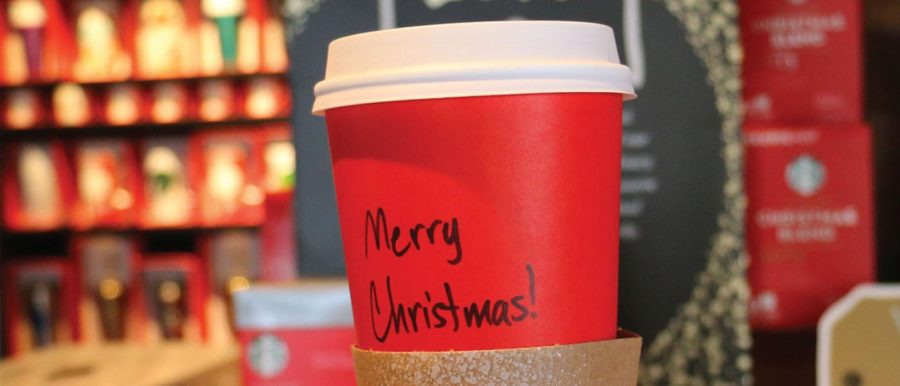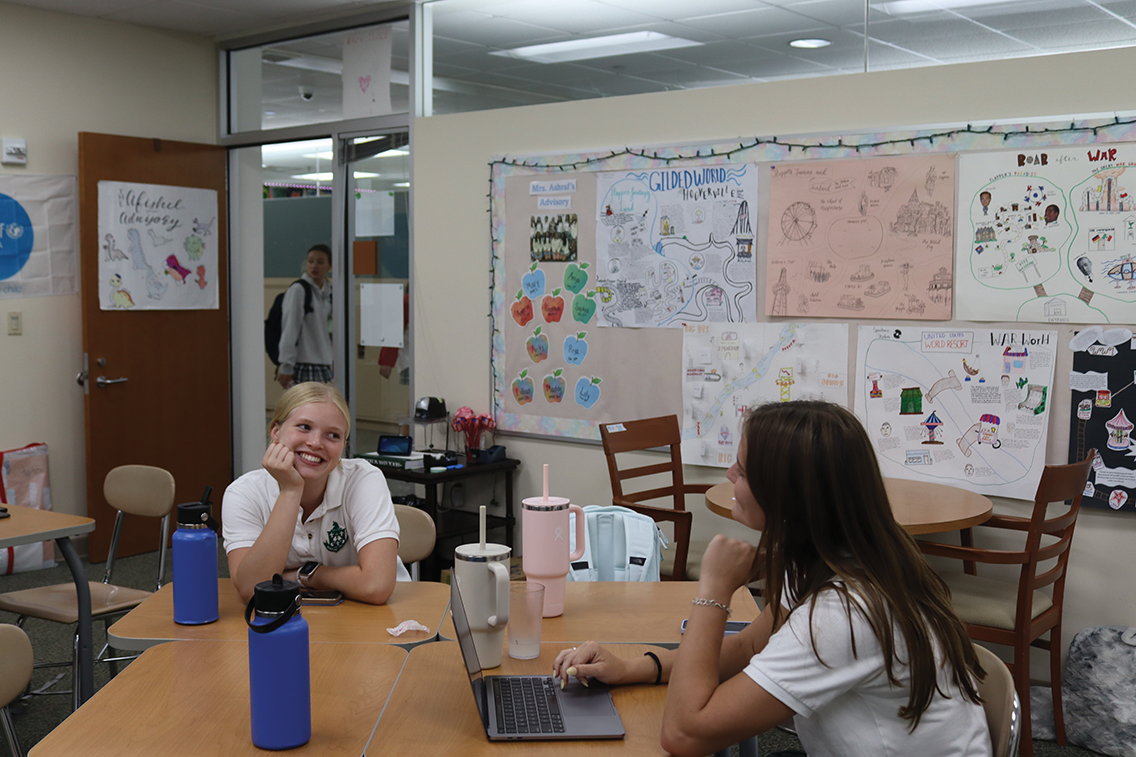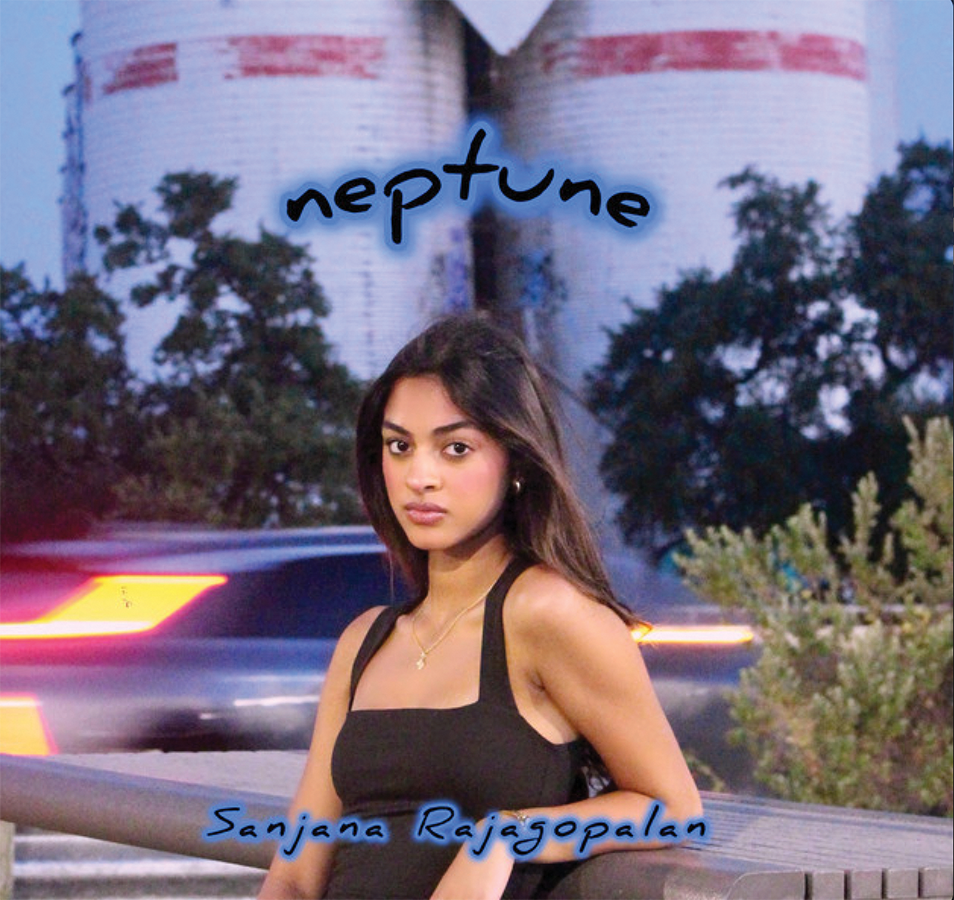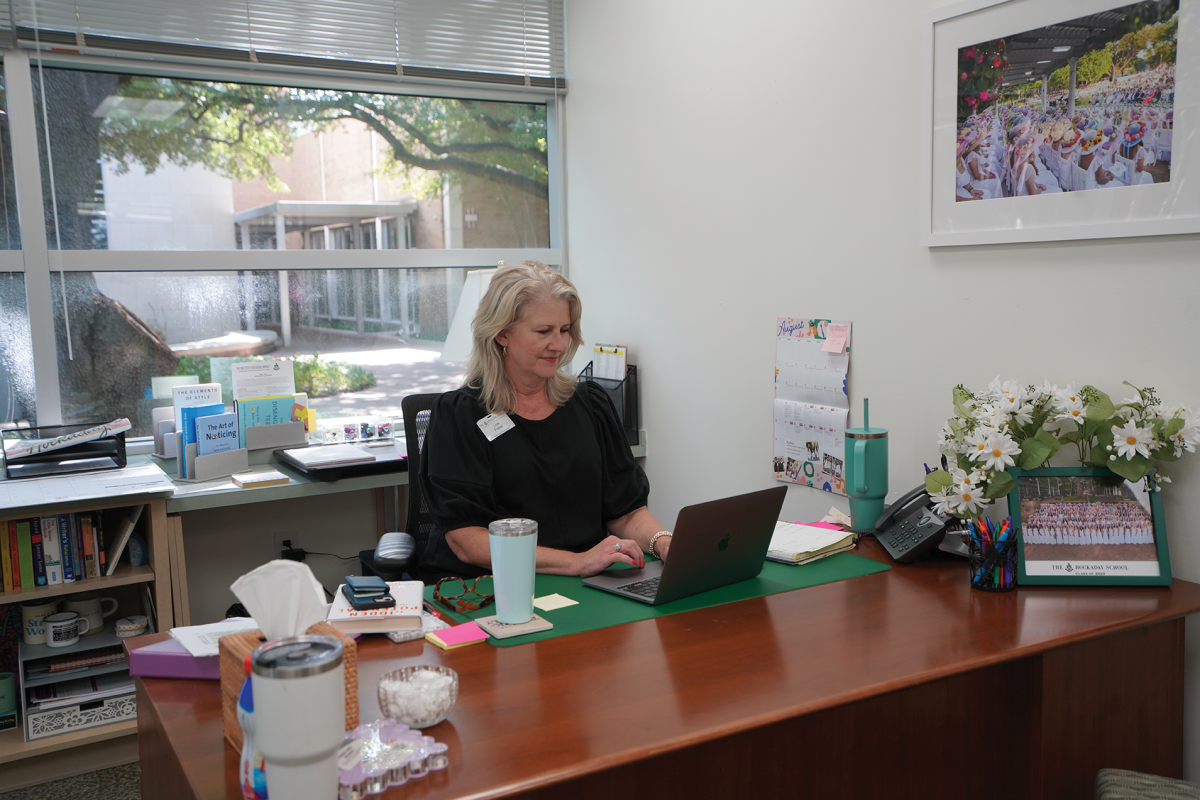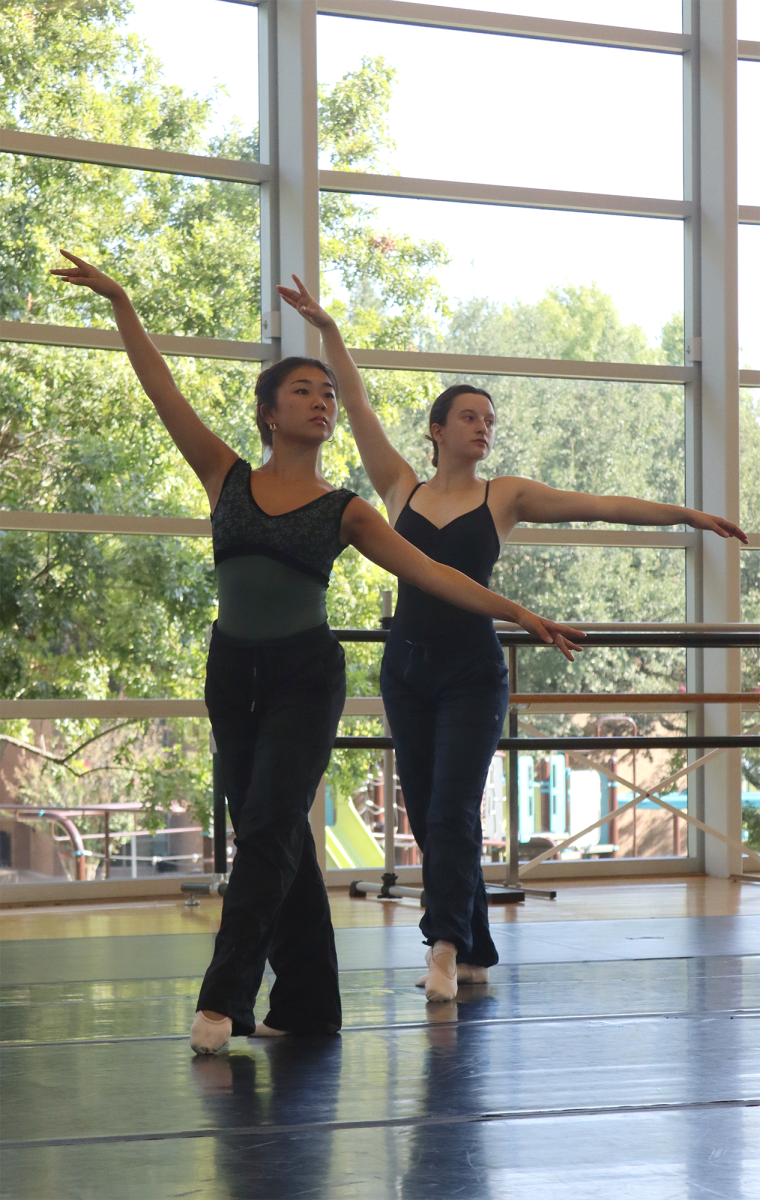As the Halloween festivities came to a close , Starbucks unveiled their new two-toned red holiday cup, which deviated from the typical cups elaborately decorated with Christmas-themed illustrations. Starbucks created this new design, which allows customers to decorate the cup with images of their own holiday traditions, in order to promote inclusion for customers who do not celebrate Christmas.
In response, some offended customers have tried to coerce Starbucks into bringing back religious sentiments: Joshua Feurerstein, a self-proclaimed American evangelist and social media celebrity, urged followers to tell Starbucks employees that their name is Merry Christmas in order to “trick” baristas into writing Christian sayings on the cups and thereby endorse the religion.
Feuerstein added to his critique of Starbucks on his Facebook profile page. “Starbucks REMOVED CHRISTMAS from their cups because they hate Jesus.”
Feurerstein is not alone in his disapproval of the new red cup. Many people have taken to social media platforms, such as Twitter, to condemn Starbucks for removing their beloved Christmas icons and waging a “war against Christmas,” a phrase popularized by Bill O’Reilly in 2004. Not long after, the controversy became political as business tycoon and 2016 presidential candidate Donald Trump chimed in.
“Maybe we should boycott Starbucks?” Trump said to a crowd of supporters in Springfield, Ill. “I don’t know.”
Khalid Hamideh, an attorney who represents the Islamic Association of North Texas, is not a Starbucks customer but finds the new cup offensive as well.
“I do not care for Starbucks and think they are very manipulative in all they do, and [I] for one do not endorse or use their products,” Hamideh said. “I think it is very disrespectful not to put the Christmas tree on their cups; it smacks of corporate bigotry.”
While both media personas and local Dallasites have criticized the company for anti-Christian sentiments, sophomore Maye McPhail, a Christian, does not understand the reason for the magnitude of this controversy. Starbucks has continued to promote Christmas-themed products such as advent calendars and Christmas-blend Keurig cups, proving they have not completely gotten rid of the holiday’s influence.
“Red and green, Christmas trees, snowflakes, all those are secular images of the holiday season that have transcended a certain religion to be more about the holiday season, and so really making the cup plain red is not much of a deviation from that but more of, to me, an aesthetic choice,” McPhail said.
Sophomore Ali Hurst describes herself as a spiritual Jew. She agrees that this change does not seem worthy of the heated debate since Christmas still is represented by the majority of the country.
“It doesn’t need to be that big of a deal,” Hurst said. “It is just people being offended because their religion is slightly less represented even though it is all over the place.”
But some students, like senior Juliette Turner, who leads Hockaday’s Bible Study club, do not have a direct problem with the cup. Turner sees it as a representation of the political correctness that has been sought by companies. She wishes that corporations as well as individuals could share their religious beliefs and celebrate their holidays without seeming intolerant of other faiths.
“In society today, I think we have become a little bit too politically correct in regards to religion and that has actually inhibited any form of celebrations from being displayed,” Turner said.
While some people have not supported this political correctness, Starbucks intended to embrace people of all backgrounds and religions. In the past, Starbucks has incorporated deer, snowflakes, ornaments and Christmas trees in their traditional holiday cup design. These special holiday cups have been around since 1997.
To share the inspiration for their new red cup, the company wrote in a press release that “creating a culture of belonging, inclusion and diversity is one of the core values of Starbucks, and each year during the holidays the company aims to bring customers an experience that inspires the spirit of the season.”
Sophomore Cate Ginsberg, who celebrates both Christmas and Hanukkah, agrees that the inclusion of people of all religions allows everybody to engage in the holiday season.
“The more people you can include, the better,” Ginsberg said.
However, inclusion of all religions has been slow within corporations. Companies such as Frito Lay, Kellogg’s and Pepperidge Farms have created Christmas-themed food products such Christmas tree Doritos sold in Japan and Red and Green Holiday Goldfish. These companies have not made products for other religions such as Judaism and Islam.
Hurst recognizes though that she has become so desensitized to the lack of knowledge and respect for her faith of Judaism and does not even notice the lack of Hanukkah-related decorations. But Hurst does wish that companies would include Judaism in their holiday festivities, even if by only making small cookies with a Star of David on them.
“It would be nice if [Judaism] was a little more incorporated,” Hurst said.
You may love the cup, hate the cup or have no interest in it at all, but regardless of your opinion, in the wake of all this debate and controversy, the real winner is Starbucks, which has gained the attention of religious leaders, customers and many journalists.
According to CNBC, 9.2 million articles have been written regarding the new cup and the resulting controversy. And now, yours truly has contributed to promoting Fortune Magazine’s most admired food and service company in the world. Not that they needed it.


